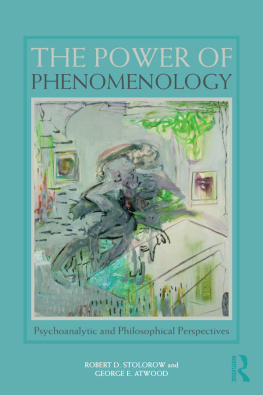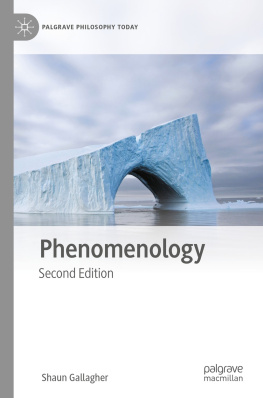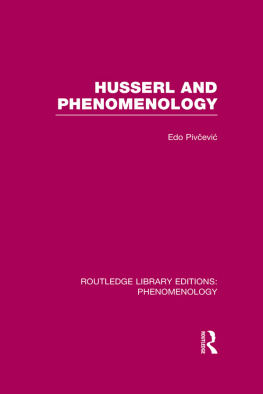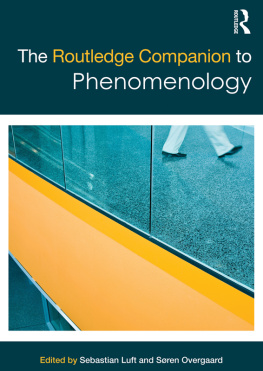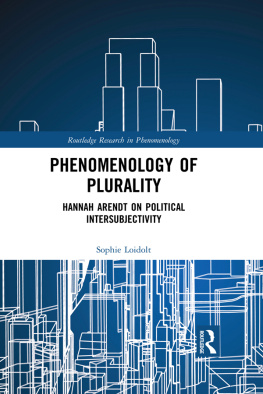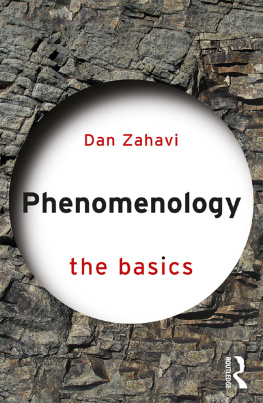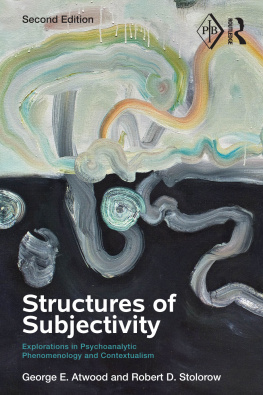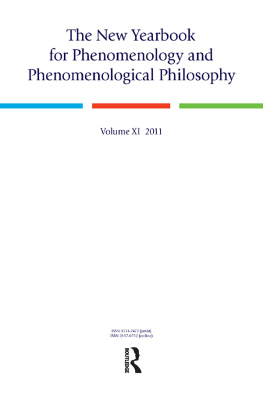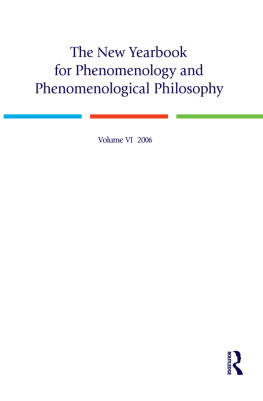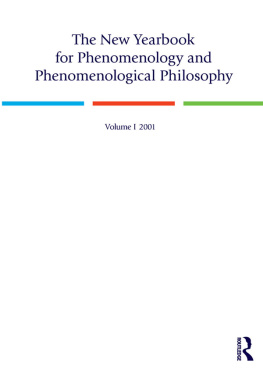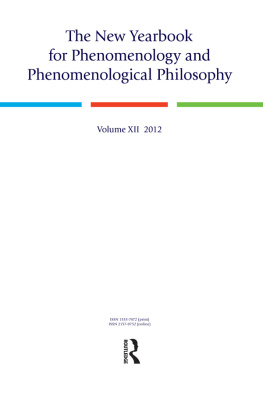
THE POWER OF
PHENOMENOLOGY
The Power of Phenomenology took form when the two authors realized that a single theme has run through the course of their almost half-century-long collaboration like a red threadnamely, the power of phenomenological inquiry and understanding in a wide range of contexts.
This book demonstrates how they have experienced the power of phenomenology in their therapeutic work with patients, especially those struggling with horrific trauma; in their encounters with psychological and philosophical theories; and in their efforts to comprehend destructive ideologies and the collective traumas that give rise to them. The Power of Phenomenology presents the trajectory of this work. Each chapter begins with a contribution written by one or both authors, extending the power of phenomenological inquiry to one or more of these diverse contexts. The contributions are followed, one or two at a time, by a dialogue between the authors, illustrating the dialectical process of their long collaboration. The unusual format seeks to bring the phenomenology of their collaborative efforts to life for the reader.
The Power of Phenomenology will appeal to psychoanalysts, psychoanalytic psychotherapists, and scholars of philosophy.
Robert D. Stolorow is a Founding Member at the Institute of Contemporary Psychoanalysis, Los Angeles, USA. He is the author of World, Affectivity, Trauma: Heidegger and Post-Cartesian Psychoanalysis (Routledge, 2011) and Trauma and Human Existence: Autobiographical, Psychoanalytic, and Philosophical Reflections (Routledge, 2007) and co-author of eight other books.
George E. Atwood is Emeritus Professor of Psychology at Rutgers University and a Founding Member of The Institute for the Psychoanalytic Study of Subjectivity, New York, USA. He is the author of The Abyss of Madness (Routledge, 2011) and co-author of seven other books with Robert D. Stolorow. Both he and Stolorow have been absorbed for nearly five decades in the project of rethinking psychoanalysis as a form of phenomenological inquiry.
THE POWER OF
PHENOMENOLOGY
Psychoanalytic and
Philosophical Perspectives
Robert D. Stolorow and
George E. Atwood

First published 2019
by Routledge
2 Park Square, Milton Park, Abingdon, Oxon OX14 4RN
and by Routledge
52 Vanderbilt Avenue, New York, NY 10017
Routledge is an imprint of the Taylor & Francis Group, an informa business
2019 Robert D. Stolorow and George E. Atwood
The right of Robert D. Stolorow and George E. Atwood to be identified as author of this work has been asserted by them in accordance with sections 77 and 78 of the Copyright, Designs and Patents Act 1988.
All rights reserved. No part of this book may be reprinted or reproduced or utilised in any form or by any electronic, mechanical, or other means, now known or hereafter invented, including photocopying and recording, or in any information storage or retrieval system, without permission in writing from the publishers.
Trademark notice: Product or corporate names may be trademarks or registered trademarks, and are used only for identification and explanation without intent to infringe.
British Library Cataloguing in Publication Data
A catalogue record for this book is available from the British Library
Library of Congress Cataloging in Publication Data
Names: Stolorow, Robert D., author. | Atwood, George E., author.
Title: The power of phenomenology : psychoanalytic and philosophical perspectives / Robert D. Stolorow and George E. Atwood.
Description: New York : Routledge, 2019. | Includes bibliographical references and index.
Identifiers: LCCN 2018026212 (print) | LCCN 2018033654 (ebook) | ISBN 9780429448584 (Master) | ISBN 9780429828140 (Web PDF) | ISBN 9780429828133 (ePub) | ISBN 9780429828126 (Mobipocket/Kindle) | ISBN 9781138328525 (hardback : alk. paper) | ISBN 9781138328563 (pbk. : alk. paper) | ISBN 9780429448584 (ebk)
Subjects: LCSH: Phenomenology.
Classification: LCC B829.5 (ebook) | LCC B829.5 .S67265 2019 (print) | DDC 142/.7dc23
LC record available at https://lccn.loc.gov/2018026212
ISBN: 978-1-138-32852-5 (hbk)
ISBN: 978-1-138-32856-3 (pbk)
ISBN: 978-0-429-44858-4 (ebk)
Typeset in Bembo and Stone Sans
by Florence Production Ltd, Stoodleigh, Devon, UK
To the memory of Emily S. Stolorow
CONTENTS
The idea for this book took form when we realized that a single theme has run through the course of our nearly half-century-long collaboration like a red threadnamely, the power of phenomenological inquiry and understanding in a wide range of contexts. We have experienced the power of phenomenology in our therapeutic work with patients, especially those struggling with horrific trauma; in our encounters with psychological and philosophical theories; and in our efforts to comprehend destructive ideologies and the collective traumas that give rise to them. This book presents the trajectory of this work.
Each chapter begins with a contribution written by one or both of us, extending the power of phenomenological inquiry to one or more of these diverse contexts. These contributions are followed, one or two at a time, by a dialogue between us, illustrating the dialectical process of our long collaboration. Our hope is that this unusual format will help bring the phenomenology of our collaborative efforts to life for the reader.
Ten of the 12 essays were taken from previously published work. first appeared in The American Journal of Psychoanalysis (2017, 77, 399405) and is reprinted by permission of Palgrave MacMillan. We thank the editors and publishers of these articles and chapters for their permission to reuse this work.
We are deeply grateful to Liz Atwood and Julia Schwartz for their unfailing support and encouragement during some very difficult times for all of us.
It has gradually become clear to me what every great philosophy has heretofore been: a confession on the part of its author and a kind of involuntary and unconscious memoir.
(Friedrich Nietzsche, 1886, section 6, p. 203)
In what follows, we tell the story of two love affairs with philosophyfirst, George Atwoods, and second, Robert Stolorows. We also describe the interaction of our respective philosophical journeys in our collaborative studies over the last four decades. Our goal in giving this account is to reflect on the deepest assumptions of the phenomenological-contextualist theory to which our shared efforts have led us. Again and again, we have been led to the inseparability of theoretical thought and the life in which it emerges.
George Atwood
I found philosophy at the age of 16 when I ran across a little book on pragmatism, a work that summarized aspects of the thinking of William James, Charles Sanders Pierce, and John Dewey. I cannot say that I found the ideas in this book terribly exciting in themselves, but I was able to understand them well enough, and there was something about the nature of the thinking described that was utterly entrancing to my young mind. I had discovered philosophy, a field of thought that seemed to be devoted to searching for the ultimate meaning of life and for the universal principles according to which one can and should live. It had not previously occurred to me that such an interesting realm of study even existed.

